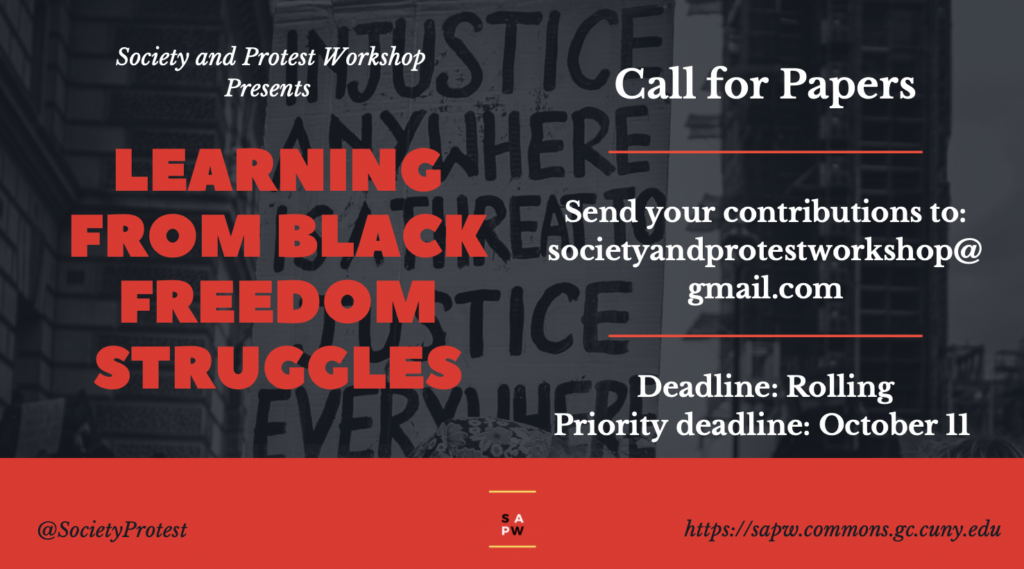
Movement Beyond Movements: Learning from Black Freedom Struggles
The Society and Protest Workshop is soliciting proposals for papers, presentations, and works-in-progress on the theme “Movement Beyond Movements: Learning from Black Freedom Struggles.”
We are now in a historical moment in which both the representational framework of formal democracy and the social movement tactics to which it gave rise are showing signs of breaking down. The withdrawal of rights, the undermining of electoral politics, and the suspension of negotiations between the state and its citizens all indicate that people using the established movement repertoire can no longer presuppose that they will be recognized as legitimate claimants—presuming they ever could.
Black freedom struggles could never take this representational framework for granted. Owing to the uneven distribution of political recognition, Black freedom struggles developed a tactical repertoire that was distinct from the one favored by other social movements. Nevertheless, since the eighteenth century, tactics like marronage, sabotage, arson, community self-defense, rioting, and armed resistance have both overlapped and become entangled with more sanctioned performances organized around public displays of worthiness, unity, numbers, and commitment, and through the formation of special-purpose interest organizations.
What can movements that continue to focus on these latter modes learn from Black freedom struggles now that the historical conditions underlying the representational paradigm have begun to wane? How do movements today learn from Black Freedom Struggles, and what does that process look like in the context of these changing norms? Beyond developing our collective familiarity with the content of these struggles, how might we reevaluate the historical conditions and normative assumptions underlying prevailing conceptions of the social movement as an object of analysis in light of i) the decline of representation as a political paradigm and ii) the logic and potential modularity of the alternate repertoire fostered by Black freedom struggles?
We welcome submissions of papers (and especially of works-in-progress) from graduate students, faculty, and activists on these and related questions. Our aim is to encourage generative discussion, and to help people writing about these issues to work through their ideas with the aim of contributing to the advancement of both scholarship and struggle.


